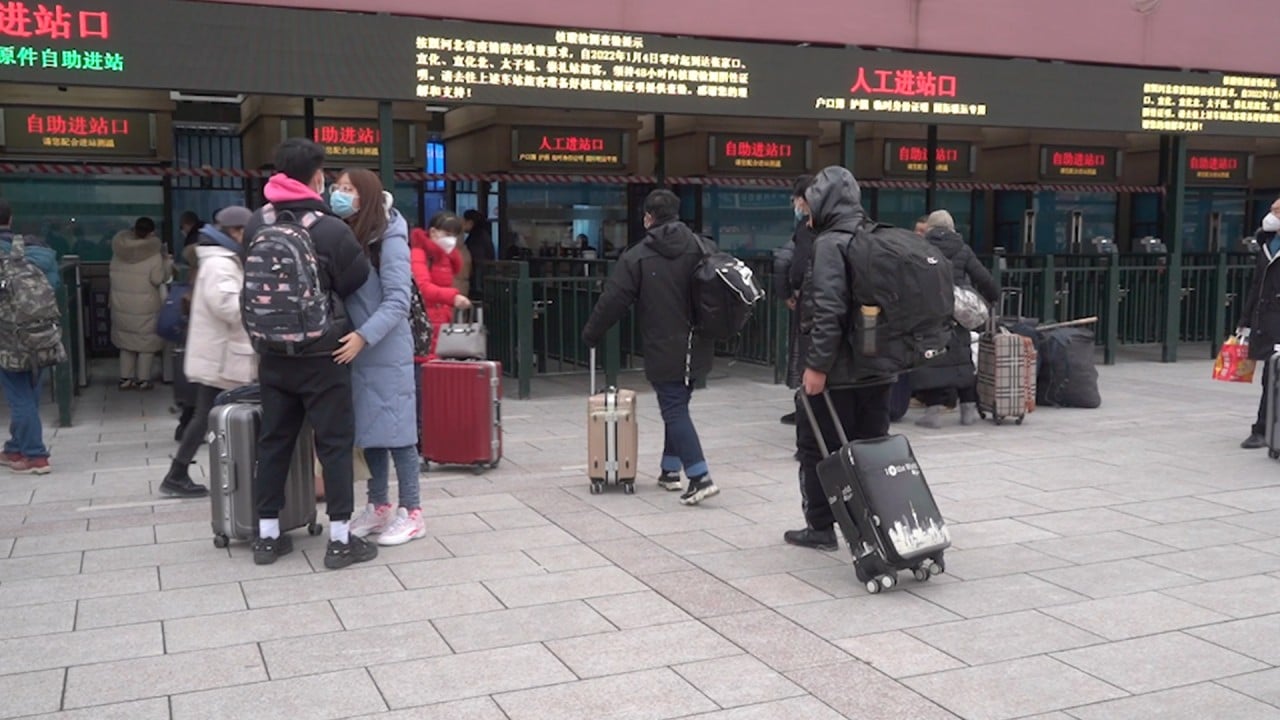
03:08
China’s Omicron outbreaks dampening Lunar New Year travels

China’s cyberspace watchdog has initiated a new campaign to sweep out unwanted internet content – from doxxing, fake news and fabricated sad personal stories to those that flaunt wealth, fortunetelling and binge-eating – during the Lunar New Year holiday, as the Omicron variant outbreak dampens travel and prompts more people to stay online at home.
The Cyberspace Administration of China (CAC), which launched the month-long campaign on Saturday, said the action was taken to ensure a “healthy, festive and peaceful” online environment during this annual holiday, according to the regulator’s announcement on Tuesday. The agency said it will name and shame offending online platforms and accounts as a deterrent.
The move comes as the government implements renewed curbs against the Covid-19 pandemic, which has disrupted Spring Festival reunions and travel plans for many among the world’s biggest internet population.
The Spring Festival travel season, known as chunyun in China, represents the biggest annual human migration on earth. Before the pandemic, it was the time when hundreds of millions of people travel across the country by rail, road, plane and, in some cases, on foot, to reunite with their families in their hometowns for the Lunar New Year.
The CAC’s latest initiative shows its commitment to clean up “unhealthy online culture” at a time when many Chinese internet users expect to spend another long stay-at-home holiday.
Still, the regulator faces a stiff challenge in sifting through the truth and fabrications in the latest cycle of heart-tugging stories making the rounds online. One widely shared and verified story on the mainland involves a migrant worker, later found to be an asymptomatic coronavirus carrier, who visited nearly 30 different construction sites in Beijing, while trying to feed a family of six and searching for his missing son. Another story is about a teenage boy who was rejected twice by his birth parents, bullied online and later found dead of an apparent suicide.
Content involving minors, including child pornography and underage live-streamers, will be closely monitored, according to the CAC. The regulator said it will strictly implement the playtime limits for online video game subscribers aged under 18 and guard against as scams involving money transfers for digital red packets.
The CAC will also continue to crack down on toxic online fandom culture, which it warned could experience an upsurge during the Spring Festival. In addition, the regulator will prevent blacklisted celebrities from appearing in online concerts and live streams during the holiday.

A number of major Chinese internet platforms have already started their own initiatives for the Lunar New Year break.
Microblogging service provider Weibo has silenced 21 accounts, some for 30 days and others permanently, for “intentionally destroying the warm and peaceful festive environment” by attacking celebrities and starting feuds on its platform, according to the company’s announcement on Saturday.
Tencent Holdings, which runs the world’s biggest video gaming business by revenue and China’s largest social media platform, created an online calendar earlier this month to remind its game subscribers aged under 18 to strictly follow their 14-hour playtime limit during the four-week winter break.
Last September, the CAC issued guidelines for internet platforms to weed out and censor “unhealthy” content.